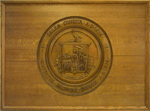Pioneer Village: Difference between revisions
No edit summary |
No edit summary |
||
| Line 9: | Line 9: | ||
==See Also== | ==See Also== | ||
*Vertical File in Salem Collection - '''Pioneer Village''' | *Vertical File in Salem Collection - '''Pioneer Village''' | ||
*[http://innopac.noblenet.org/search~S24?/Xmassachusetts+bay+tercentenary&searchscope=24&m=&SORT=D/Xmassachusetts+bay+tercentenary&searchscope=24&m=&SORT=D&search=massachusetts+bay+tercentenary&SUBKEY=massachusetts%20bay%20tercentenary/1%2C6%2C6%2CB/frameset&FF=Xmassachusetts+bay+tercentenary&searchscope=24&m=&SORT=D&1%2C1%2C Massachusetts Bay Tercentenary Guide to Salem, 1630, Forest River Park] Board of Park Commissioners, 1930 | |||
*[http://www.salemweb.com/tales/pioneervillage.shtml Pioneer Village] Salem Website | *[http://www.salemweb.com/tales/pioneervillage.shtml Pioneer Village] Salem Website | ||
*[http://innopac.noblenet.org/search/X?SEARCH=stroll+through++historic+salem&SORT=D&searchscope=24 A Stroll Through Historic Salem] by Samuel Chamberlain, p. 21-24 | *[http://innopac.noblenet.org/search/X?SEARCH=stroll+through++historic+salem&SORT=D&searchscope=24 A Stroll Through Historic Salem] by Samuel Chamberlain, p. 21-24 | ||
Revision as of 09:50, 13 August 2010
Located at Forest River Park, near the south part of Salem, Pioneer Village was constructed by the city as an accurate reconstruction of a primitive community in the New England wilderness, as the puritans would have found the land in 1626. Helping to design the site was George Francis Dow, the noted antiquarian-architect. He made sure 17th century methods and materials were used in construction. It was finished in 1930 to commemorate the 300th anniversary (the Tercentenary) of Governor Winthrop's arrival in Salem on the ship the Arbella This three-acre attraction even boasted a replica of Winthrop's ship, the Arbella.
Pioneer Village includes various types of colonial dwellings such as thatched roof cottages, bark covered wigwams, sod-roofed dugouts. One of the buildings was a recreation of Gov. John Endecott's house, built after his arrival in 1628. There was also a pillory and stocks to punish people found to have committed crimes. The Village opened in 1930 and was a popular tourist destination through the 1950's. Over the years, the site gradually deteriorated in condition and the City of Salem Park Commission considered razing the village in 1985.
The site was saved by a partnership between the Salem Maritime National Historic Site and the House of the Seven Gables. They vowed to restore and manage the once-popular site. In the next few years, museum workers and volunteers worked to restore the property. The village opened on a full time basis by the 1988 season. Goats were brought in from Plimouth Plantation to lend authenticity to the site. A grand reopening of the site was held in June, 1990.
See Also
- Vertical File in Salem Collection - Pioneer Village
- Massachusetts Bay Tercentenary Guide to Salem, 1630, Forest River Park Board of Park Commissioners, 1930
- Pioneer Village Salem Website
- A Stroll Through Historic Salem by Samuel Chamberlain, p. 21-24
